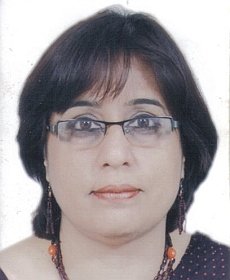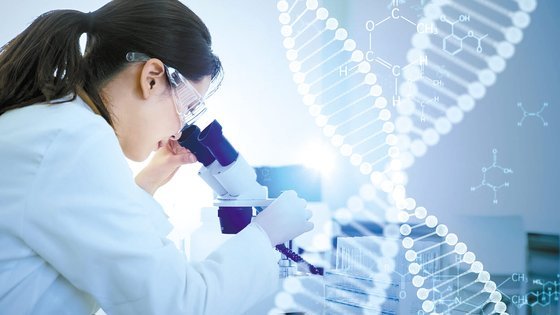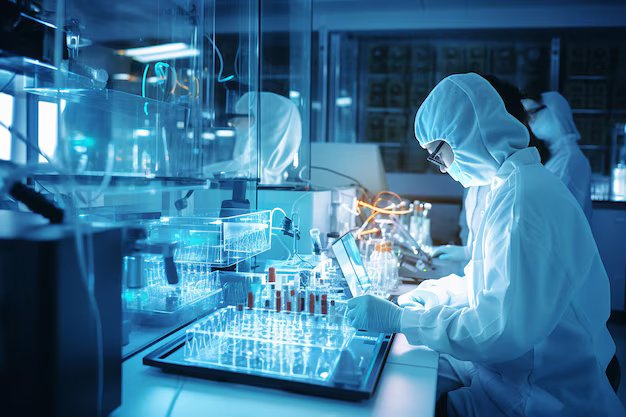
Dr Anu T Singh, director, R&D, Dabur Research Foundation, India
As Albert Einstein put it, "The world as we have created is a process of our thinking. It cannot be changed without changing our thinking." I am a firm believer that science teaches us to be rational in thought, non-judgmental about people and open to positive changes at all times.
Read inspirational stories of women leaders in life sciences:
The earliest years of my life were spent in a small, peaceful township of Punjab in northern India, which is best known for having the Bhakra Dam across the Sutlej river. My parents were my guiding force, and for them education and economic independence for their three daughters was the unquestioned goal of their lives.
I studied at Queen Mary's School in Delhi where I found life sciences to be a fascinating discipline. I completed my Zoology (hons) from Delhi University in 1987. Around this time when biotechnology was introduced in our country, I was motivated to take it up as a career option. My father, who was a civil engineer, was the inspiration for me to choose this path. He often explained to me that when a discipline as complex as biology opens itself to be combined with high-end technologies, then the possibilities to improve human health are endless.
The multi-disciplined approach to medical biotechnology with an end goal to find better treatment options in different disease conditions truly made for an incredible journey. I completed my masters in biotechnology and followed it up with a PhD in tumor biology from the All India Institute of Medical Sciences (AIIMS Delhi). By this time, I was reasonably certain that oncology was my calling and I did post doctoral research in this field from National Institute of Immunology in Delhi. I joined Dabur Research Foundation (DRF) immediately after my post doctoral research and have been associated with it ever since.
Biotechnology has grown significantly in the last two decades in the country. From a fledgling science that held promise, it has evolved into a significant field that impacts key phases of pharmaceutical drug development. The field has advanced rapidly and Indian biotechnology industry is projected to reach $100 billion by 2025. Significantly, new models for relationships between academia, education, government and the biotechnology industry are being worked aggressively both at the national and international levels to reach its full potential. I am confident that we are on the right path.
I joined Dabur Research Foundation when it had begun taking significant steps to develop its pharmaceutical business focused on cancer in the early 1990s. A body of work was done to get into cutting edge areas of drug discovery with sharp focus on targeted drug delivery. This coincided with the time when globally a need to move into personalized medicine for life threatening diseases was felt with a goal to improve clinical outcomes. I was privileged to be a part of this exciting journey.
The Dabur Research Foundation team worked tirelessly to take a pipeline of compounds through their preclinical development to first-in-human clinical experience. One of products, Nanoxel, was developed for cancers of the ovary and breast with the objective of reaching better clinical outcomes than the existing choices. This successful progression of Nanoxel from the laboratory to the reach of patients in India and outside is easily the finest moments of my professional career.
At a personal level, meeting my husband and the birth of my daughter were significant milestones of my life. My family has provided me unconditional support and love and has been my greatest strength all the way. At a professional level, working on targeted drugs that have improved survivals and quality of life of cancer patients have been the major milestones.
As a young girl I saw death in close family and learned much later that some of the key life saving drugs was not available in India in those years. It definitely changed my perspective and I was clear that drug discovery needs discipline, commitment and speed at all times to come. The simple thought that this career impacts lives of others was a turning point.
At Dabur Research Foundation, we started working on personalized medicine in oncology in early 1990s. Those were the days when very few biologically targeted drugs had received global regulatory approvals. It was challenging to design and take these compounds through preclinical and clinical development because it was different from the models of development that existed at that time, which were more aligned to development of synthetic cytotoxics. It was one of the greatest learning experiences & we could take these compounds ahead with confidence in the rationale & the rigor of the data that was generated around them.
I have been fortunate to have had illustrious mentors, teachers and peers from whom I have learned different things. I firmly believe that "If I have seen it further it is by standing on the shoulders of giants."
I love traveling to different parts of the world and absorb the variety of cultures and cuisines. I find reading and listening to music very relaxing. Personal and professional goals have to be balanced well for creativity, productivity and happiness. I have learned that a combination of time management, fitness, stress management and building of sustainable support systems is the key to achieving this balance.
I am happy to share that 50-to-60 percent of the scientists at Dabur Research Foundation are women and they have made very significant contributions. To all the young women out there who want to contribute to biotechnology in the years ahead, my message is simple: Please pick this as a career only if you love it and are inspired by its potential. Once you do so, it will cease to be a job and it will be a lifelong commitment. It will need hard work, patience and discipline all along the way but the journey will be very rewarding when one realizes that it enables one to make a difference to people's health and lives.
I would like to continue to contribute towards biology-driven innovations in India. In the last two decades, Indian biotechnology companies have taken major strides in that direction. At DRF, we have over the years built a motivated and well trained team of scientists who have the expertise to undertake complex preclinical development for compounds in several therapeutic areas, including oncology, inflammation, immunomodulation, dermatology and metabolic diseases. We have been working as drug discovery and development partners to several national and international groups by providing access to this expertise. It is important to nurture this expertise as essentially this is the key to successful translation of compounds in the clinics.
Lastly, but significantly, biotechnology has to provide the answers to the ever changing needs of healthcare and it is critical to keep biotechnology connected and responsive to changing healthcare needs. The biotechnology industry has to provide solutions to the ever-changing needs and challenges of the healthcare industry. In the years to come, I would like to continue to play a role in strengthening capacity building in core and emerging areas of biotechnology, through mentoring of the next generation of biotechnologists.
(As told to Vipul Murarka)



